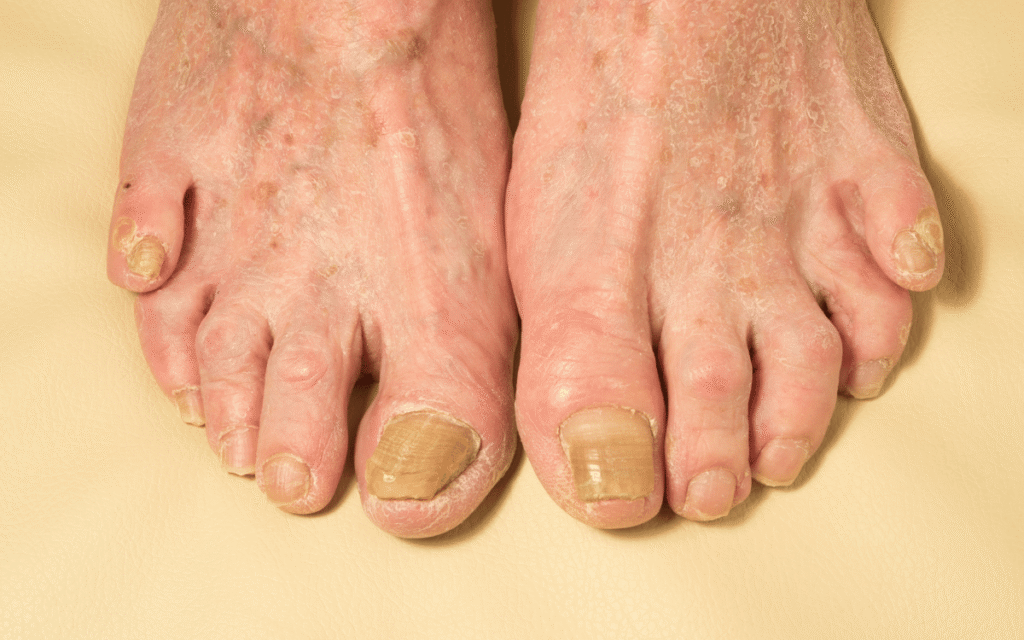Fungal nails may seem like a minor concern, but their impact on daily life can be more significant than many realize. Beyond the cosmetic changes, fungal nails cause discomfort, affect mobility, and even lead to self-consciousness in social settings. Left untreated, the condition may worsen and complicate overall foot health. Here’s more information on the impact of nail fungus infection on quality of life:
What Causes Fungal Nails?
Fungal nails occur when nail fungus, also called onychomycosis, infects your toenails or fingernails. The fungus thrives in warm, dark, and moist environments, making your feet the perfect breeding ground. Your nails provide an ideal home for these organisms to grow and multiply.
The infection begins as a small, white or yellow spot under the nail tip. Over time, the fungus spreads deeper into the nail, causing it to thicken, discolor, and become brittle or crumbly. Some nails turn black or green as the infection progresses. The nail may also separate from the nail bed or grow in abnormal directions.
What Are the Physical Effects?
The physical symptoms of fungal nails extend beyond appearance changes. While early-stage infections usually don’t cause pain, advanced cases can make walking uncomfortable or painful. The thickened, distorted nails may press against your shoes, creating pressure points that hurt when you move.
Severely infected nails become so thick that trimming them becomes difficult or impossible with regular nail clippers. This often leads to ingrown nails, which cause more pain and may require professional treatment. The brittle, crumbly texture of infected nails can also catch on socks or stockings, causing further discomfort.
In some cases, the infection can spread to surrounding skin, causing athlete’s foot or other fungal skin conditions. This creates a cycle where the skin infection can reinfect the nails. This makes treatment challenging and prolongs the healing process.
What Are the Emotional Effects?
The appearance of fungal nails can significantly affect your emotional well-being and social interactions. Many people feel embarrassed about their discolored, thick nails and go to great lengths to hide them from others. This may lead to avoiding activities like swimming, going to the beach, or even wearing open-toed shoes.
The shame and self-consciousness associated with nail fungus infections can impact relationships and social situations. You may avoid intimate situations where your feet are visible, or feel anxious about activities that require removing your shoes, such as yoga classes or visiting friends’ homes. These emotional effects can create a cycle of avoidance that limits your lifestyle choices and activities.
What Are the Treatment Options?
Several treatment options are available for fungal nails, ranging from topical creams to advanced laser therapy. Antifungal creams applied directly to the nail help to treat mild infections, while oral medications work from inside your body to fight severe cases. Laser therapy offers a painless, noninvasive option that directs light energy into the nail to kill the fungus. For extremely severe cases, surgical removal of the affected nail may be necessary to allow a healthy nail to grow in its place. Making lifestyle changes can help prevent reinfection and support treatment success.
Schedule Your Fungal Nail Treatment
Fungal nails affect much more than just the appearance of your nails. They can cause physical discomfort, emotional distress, and social limitations that significantly impact your quality of life. Contact an expert podiatrist near you today to schedule your appointment and discuss your treatment options.



